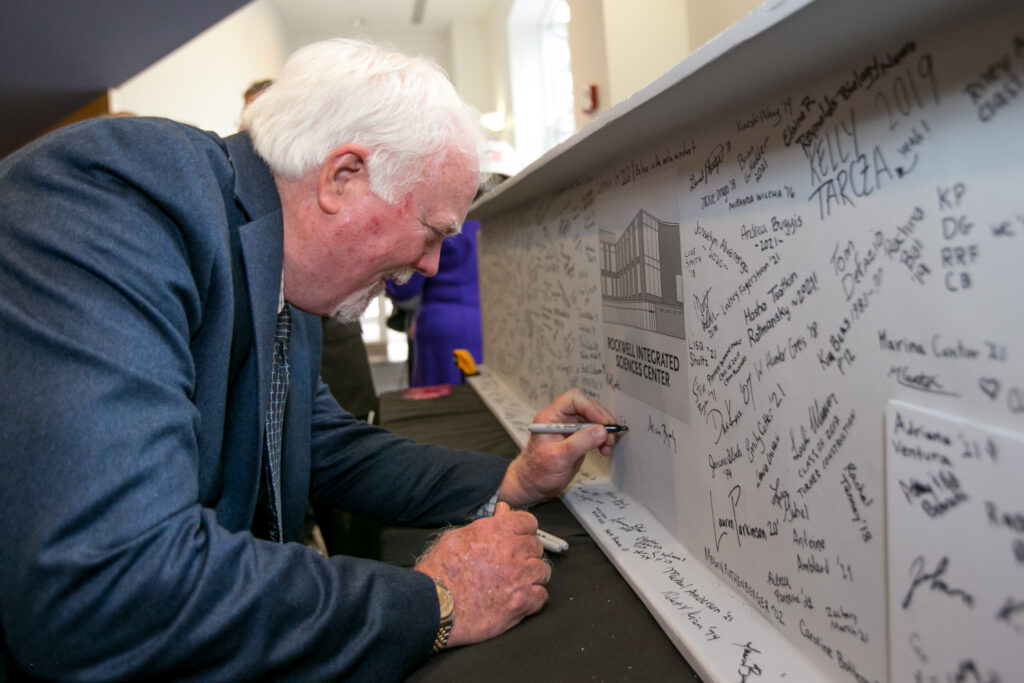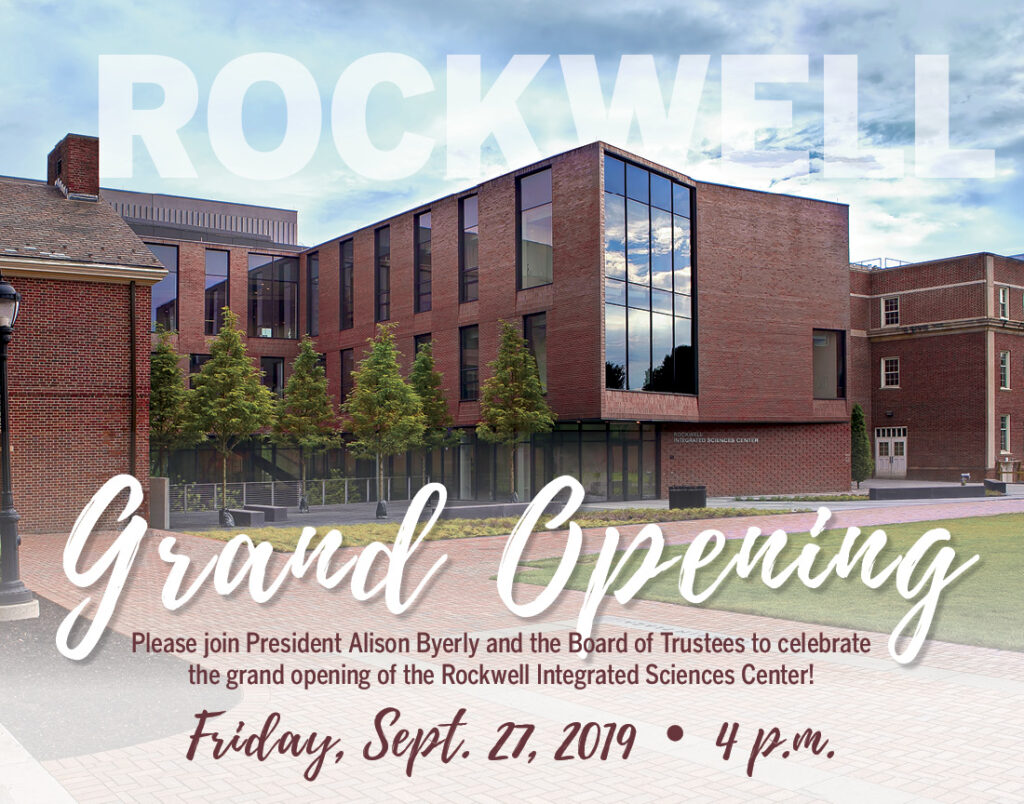As campus community prepares to dedicate Rockwell Integrated Sciences Center, its principal supporter discusses his gift and hopes for Lafayette’s future
By Bryan Hay
After two years of construction and anticipation, Rockwell Integrated Sciences Center will be formally dedicated Friday, opening a new chapter in Lafayette’s commitment to innovative programs in fields that intersect life sciences, technology, and engineering.
The $75 million, five-story building, the largest capital project in Lafayette’s history, was made possible by a $35 million lead gift from S. Kent Rockwell ’66, one of the College’s most generous benefactors.
An emeritus trustee and chairman and CEO of Rockwell Holdings Inc. of Pittsburgh, the pro-innovation entrepreneur and self-described risk-taker has created dozens of companies with collectively more than 3,000 employees, including Rockwell Forest Products Inc., Strata Products Worldwide, Appalachian Timber Services, Strata Proximity Systems, and ProGrass LLC.
Ahead of Friday’s 5 p.m. dedication ceremony, Rockwell candidly discussed what led to his support of the center and his hopes for Lafayette’s future.
Can you recall the circumstances behind your support of the sciences center project?
I initially worked with former Lafayette President Dan Weiss about developing a college center for an entrepreneurs program that would assist students in dealing with business innovation processes. Dan responded with a much broader vision of a program that evolved, with the added insight and execution from Alison Byerly and her team, into the Integrated Sciences Center concept. I made a gift bequest of securities that appreciated in value during the time it took to deliver them to the College, and the size of that gift became substantial enough to consider advancing this college building initiative that became Rockwell Integrated Sciences Center.

S. Kent Rockwell affixes his signature at beam signing ceremony on
May 10, 2018.
As a student at Lafayette, did you have any inkling that you might one day support the College in such a major way?
The value of this gift was far beyond my early expectations of how I might support the school. It resulted from a series of company investments I have made since the mid-1980s that resulted in public equity valuations, which appreciated over time. As a beneficiary of succeeding in our capitalist democracy, I believe there is a moral and social obligation to return value created in this manner back to society. Lafayette represents a prominent educational institution for delivering quality education to our future students globally. I am merely fulfilling my responsibility through the advancement of our Lafayette College vision in this regard.
Now that the center is open and in use, what is your hope for the College and future students and faculty who will learn and find inspiration in this facility?
It was the inspiration of the College administration and faculty and oversight of the Board of Trustees that defined the facility. I believe that I saw an opportunity in this regard to further advance the quality of students we could attract and further educate. This is essential for Lafayette to lead to a qualitative differentiation or distinction of our school in order to maintain a leadership role in an ever more challenging and complex educational marketplace.
What are some of the characteristics of the new sciences center that you most admire?
I was not an engineering student, nor a good math student in college. I studied economics. But I have enjoyed creating and managing over 20 companies in my lifetime. Most of these were in high-tech markets where engineering was essential to our success. I found these opportunities because many good engineers did not have the management skills to independently overcome the critical needs of cash management, capital markets, human resources, or failure management.
I believe the new center has incorporated some of these studies in an integrated manner to benefit new graduates with some of these skills. Essential to this deployment is the successful integration of curriculum from the Dyer Center for Innovation and Entrepreneurship. Innovation is, in my opinion, in crisis mode in our current business environment, and we need to define new methodology for stimulating and advancing innovation in our country. I think the center is established with the objectives to help see these things accomplished.
If this building had been on campus when you were a student, where would we find you studying?
One of the most impactful subjects for me was psychology. Learning how to manage and incentivize people is an important skill. I am a gambler and a risk taker. You must understand how to manage failure. These are skills that can be used in multiple workplace environments. I believe that the entrepreneurship lab at the Dyer Center would be my most likely site of residence. No such place existed in my time at Lafayette. I did learn a lot at the fraternity bridge tables. This did not help me graduate, but it did give me a good foundation for other lessons in life that were equally important to my education.


